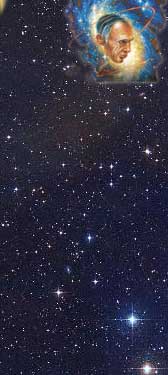|
|
|
||||||
|
|
|
|
|||||
|
|
|
Early in the first few years of my writing, I sold one of my stories to a new magazine, called Galaxy. Soon after that I met Horace Gold, who lived at that time in Stuyvesant Town, not too far from where I later lived in West Greenwich Village. Horace liked my stuff, and indicated that he would be very happy if I showed him everything first. This was fine by me -- he paid the best rates in the field. I sent him most of what I wrote, always leaving myself time to sell stories to the old pulp magazines that I had loved since childhood. During those years I began selling to Playboy, whose one-price-fits-all $1,500 for a short story was far better than anything the science-fiction pulps, or digest-size magazines, as they were now called, could do. They provided superior illustrations for the stories, too, and you got to associate with names like A.C. Spectorsky, Ray Russell, and with famous non-genre writers like Irwin Shaw, John Updike, and many
others.
But Playboy was not a market I could count on. My income came from science-fiction magazines, most notably Galaxy. I began to socialize with Horace, and became a regular at his Friday-night poker games, where the evening usually ended with the ritual cry of "once around to Sheckley." Many non-science fiction people came to these games. I remember John Cage, silent and smiling, a winner at poker as at so many other things. Louie and Bebe Barron were there, well-known soundtrack artists for the movies. We sf writers lusted for movie sales, but had to wait a few years for the market to develop. I did several miscellaneous writing chores during that period. I was hired to write a fifteen-episode series for Captain Video. That was when I still lived in Ridgefield Park, New Jersey, because I can remember the messenger who came by every evening to pick up my day's episode to take it to Dumont, Channel 5, in the old Wanamaker Building in downtown Manhattan. They were in a hurry for my script, since it was the only one suitable for advertising a plastic space helmet that one of the advertisers was offering, along with whatever product he was selling. I found the work easy enough, but there seemed no reason to continue it. Esthetically or artistically it didn't impress me, and the pay at that time, $100 for a half-hour episode -- or was it an hour? -- was comparable to the magazine work I was already doing. How was I to know of the much better prices television would pay in a few years? And if I had known, what would I have done about it? Nothing, probably. I was out there to be a freelance fiction writer. One of the French surrealist writers had a character say, "As for living, we will let our servants do that for us." That was very much my attitude. I had no serious money desires. Not even solvency was a sufficient goal to divert me from what without much conscious plan, I was doing. I was asked by ABC radio to write a story for them to be used for a two-hour dramatic presentation. I came up with "The People Trap," which someone adapted. It starred Stuart Whitman and Vera Ralston, among others, and was successful, in its way, but not to the point of Hollywood beating a path. |
|
|
|||
 |
|
||||||
 |
|
||||||
|
|
|
||||||